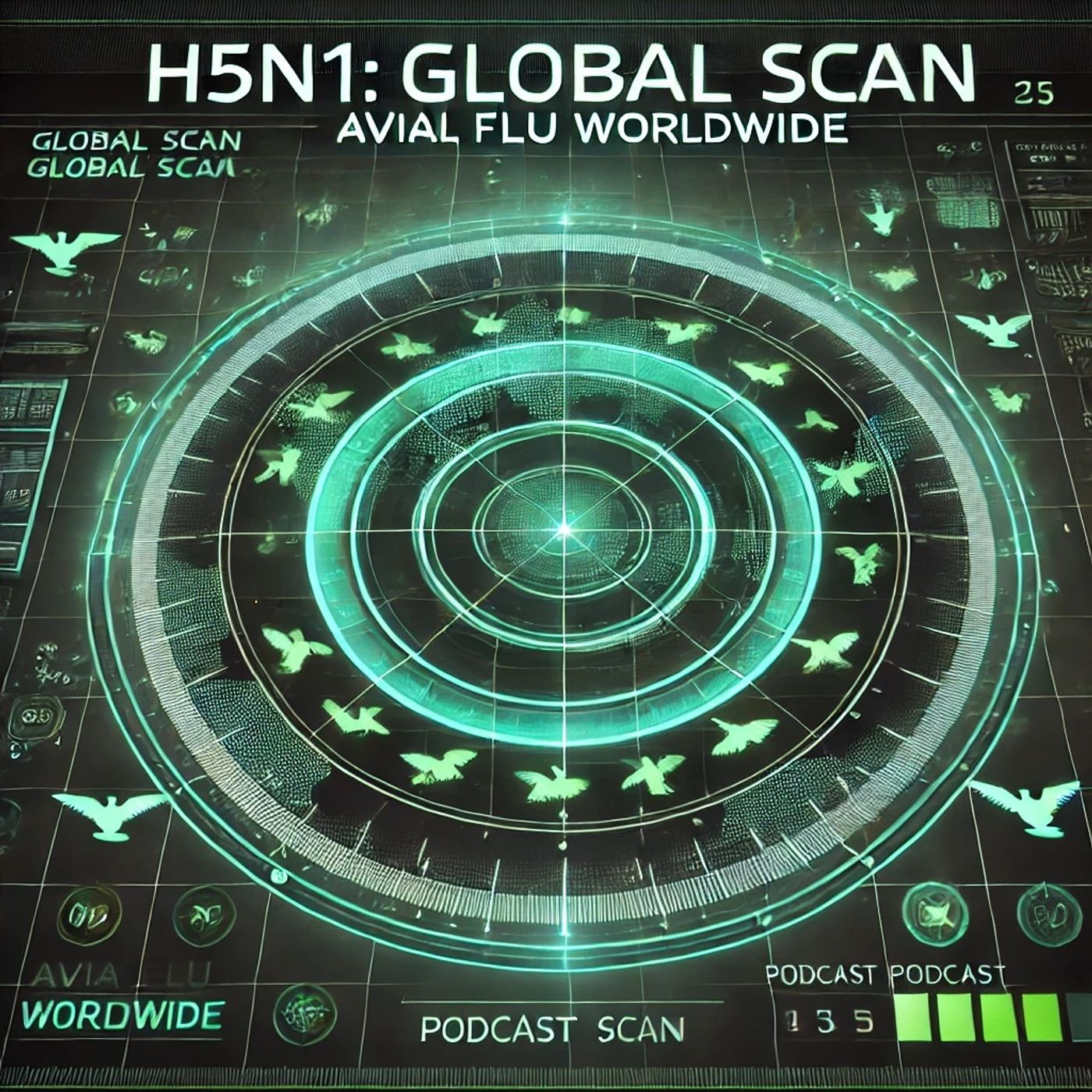Podcast Episode Details
Back to Podcast Episodes
Global H5N1 Avian Flu Outbreak Spreads Across Continents Raising Concerns for Public Health and Agriculture in 2025
This is H5N1 Global Scan: Avian Flu Worldwide, your 3-minute international focus from Quiet Please.
H5N1 avian influenza is gripping headlines across continents as the virus’s global march accelerates and the stakes for public health and economies rise. According to the World Health Organization, as of July 2025, nearly a thousand human cases have been reported globally since 2003. In just the first half of 2025, 26 new human infections were detected across seven countries, with fatalities reported in Cambodia, India, and Mexico. Most cases trace to people in close contact with infected poultry or wild birds, and—critically—widespread human-to-human transmission has not yet been confirmed.
Let’s break down the latest H5N1 landscape by continent.
In Asia, Cambodia, India, and Vietnam are hotspots. Cambodia registered 11 new cases so far in 2025—seven in June alone. Rural communities, where backyard poultry is common, remain disproportionately affected. China continues intensive surveillance and rapid culling policies.
Across Europe, countries like the UK and France report sporadic human cases and significant livestock impacts. The UK recently detected infections in both poultry farm workers and, unusually, in sheep and dairy cows—a reminder of the virus’s wide animal host range.
North America is seeing its most severe animal outbreaks on record, affecting all 50 U.S. states and Canada. More than a thousand U.S. dairy herds and millions of poultry have been impacted, disrupting egg and poultry supplies. Over seventy human H5N1 cases were reported in the U.S. since early 2024, with the first fatality in a farm worker this year.
In Latin America, Peru has recently reported new outbreaks in backyard poultry. Mexico suffered its first fatal human case, sparking renewed concern about cross-border disease movement.
Africa continues to face ongoing outbreaks, primarily in West and North African poultry sectors, while surveillance challenges hinder containment.
Australia, uniquely, has so far avoided major H5N1 outbreaks.
International research is surging. According to the Global Virus Network, experts from over forty countries warn that the virus’s ability to infect a widening range of mammals raises the risk of genetic changes enabling easier human-to-human spread. Genomic research is closely watching for mutations. Animal vaccine trials are underway internationally, but no global human H5N1 vaccine is yet widely approved. Emergency vaccine stockpiling is ongoing in the U.S., Europe, and Asia.
Both the World Health Organization and UN Food and Agriculture Organization stress that current global risk to the general population remains low. However, they call for cross-country data sharing, joint outbreak investigations, and harmonized border controls to manage cross-border movement of poultry, products, and potentially infected individuals.
Countries take different approaches. The U.S. deploys rapid detection, mass culling, and compensation programs. China emphasizes market closures and rapid containment, while the EU is focusing on farm biosecurity and restricts live-bird trade. Nations with limited resources face bigger hurdles containing outbreaks, highlighting a gap in global equity and support.
Trade impacts are significant: egg, poultry, and dairy shortages have triggered price spikes and disrupted trade from the Americas to Asia. For some countries, export bans and import restrictions strain economies and farmers.
Thanks for tuning in to H5N1 Global Scan: Avian Flu Worldwide. For more international insights, join us next week. This has been a Quiet Please production, and for more visit Quiet Please Dot A I.
For more http://www.quietplease.ai
Get the best deals https
Published on 2 weeks, 1 day ago